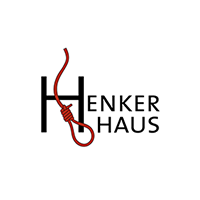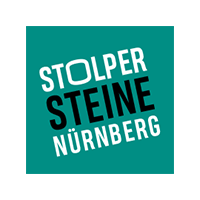Speech given by Julie Künstler during the laying of stumbling stones for her grandparents
No stumbling stone can provide solace for the murders of Moriz and Juliana Künstler. But this ceremony provides us with an opportunity to reflect on their lives, their support of family and community, and their contributions to Germany. It connects each generation, as we say in Hebrew, l’dor vdor.
Juliana was born in June 1882 in Bendorf, on the Rhine. She studied nursing at the Jewish Hospital in Berlin, passed her state examinations and became an official nurse. She left Berlin and accepted a job at the Jewish Hospital in Breslau, then went to work at the Jewish Children’s Home in Bad Kissingen. Juliana was a compassionate head nurse and instructor. She believed in science and education for men and women.
Moriz was born in December 1876 in Brunnau, Lower Franconia, Bavaria. He was an excellent student and was sent to high school 25 miles away but he had to leave school due to the lack of funds. He was sent to Gemünden, a town in lower Franconia, to become an apprentice in the textile store of W.B. Schloss. There, he met another apprentice and they later became business partners along with one of the Schloss’s sons. Moriz managed the Nürnberg store, along with working in sales until his military service.
Moriz was in excellent health, an expert horseman, and a superb marksman. He spent several years of his military service in Würzburg. Afterward, he returned to the textile business and concentrated on selling to government employees, such as postal and railway workers. The business grew, and Moriz moved it to larger facilities in Nürnberg. He employed many workers and salespeople – both Jewish and non-Jewish.
Moriz and Juliana married in 1908. Moriz was already 31 years old and Juliana was 26 – not a young couple; especially in those days.
During World War I, Juliana served as a Red Cross nurse until she gave birth to my Aunt Anne Marie (Annemie) in early 1918. Moriz served as an officer on the Western Front. He received the Iron Cross in 1915, along with other medals. My father, Peter Justin, was born in late 1919. Moriz spent considerable energy expanding the textile business after the war.
Moriz and Juliana were both active in the secular community and the Jewish Liberal Community. Moriz was secretary and treasurer of the B’nai Brith lodge and active in the German-Jewish Veteran organization.
Their lives and the lives of their children changed drastically when Hitler came to power in January 1933. Initially, several non-Jewish employees offered their help and used their names on company documents. These employees had deep respect for Moriz. Also in 1933, Moriz was detained and beaten by the Nazi SA.
More restrictions came. At age 16, my father could no longer continue his studies in Germany and left for Technical College in Bodenbach, Czechoslovakia.
Moriz, Juliana, and Aunt Anne Marie survived Kristallnacht. On November 9 1938, the SS entered their apartment and smashed furniture and paintings. My Aunt retained vivid memories of that traumatic event throughout her life.
Moriz and Julianna focused on securing safety for their children before themselves. They used their resources to help their two children leave Germany. By 1938, Moriz was 62 years old, and Julianna was 56 – no longer young. They did not have the right connections to obtain visas to other countries.
My father and aunt tried to help their parents escape. Their efforts continued as they became refugees, and in the case of my father, imprisoned as an illegal alien, in other countries.
Moriz and Julianna were deported on March 23rd 1942 to Izbica, Poland. They were murdered, either by gun shots or by being gassed-to-death inside a bus. Gun shots and gassing in vehicles were the methods used before the perfection of gas chambers.
I want to share what I learned about my grandparents from their wonderful children: my Aunt Anne Marie and my father Peter.
Although Julianna formally retired from nursing once she became a mother, she continued to serve those in need. She fed anyone who came to the door in need of a meal. She employed household workers after they were no longer needed. For example, she found work for the nanny that enabled her to remain in the household with a room, food, and an allowance. Moriz provided funds to his siblings, his wife’s siblings and to charities. They opened their home to displaced German Jews until their deportation.
This spirit of charity was taught to their children. My Aunt provided food and funds to those in need throughout her life in Stillwater, Oklahoma. And she did so with grace. My father provided for those in need, both family and friends, and by fostering a child.
I am one of four grandchildren who never had the honor of meeting our grandparents. While we heard stories about our grandparents, my Aunt never saw her parents after the age of 22. My dad was 19 when he last saw his mother and 17 when he last saw his father.
We are grateful for our parents who survived hell in Germany and then life as refugees. Today, the four of us, my brother and my two cousins have, in total, nine children, and 15 grandchildren.



